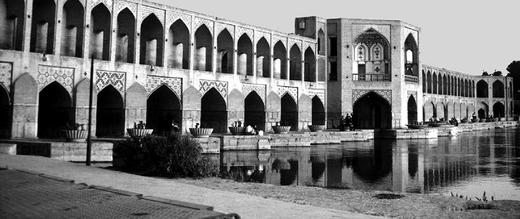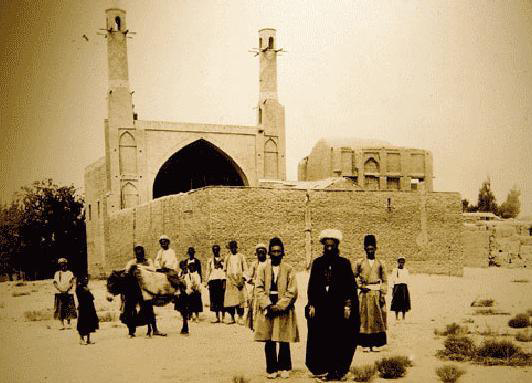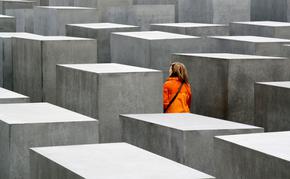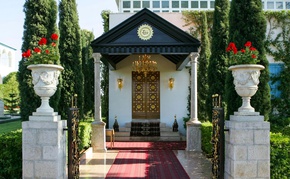The views expressed in our content reflect individual perspectives and do not represent the authoritative views of the Baha'i Faith.
At the hands of the fanatical clerics and their followers, the deadly persecutions of the Baha’is continued.
In fact, the final significant work written in the closing years of Baha’u’llah’s life – a book called The Epistle to the Son of the Wolf — was written to the son of an Islamic cleric who had ordered the execution of two wealthy Baha’is. These two brothers, Hasan and Husayn, worked as merchants in Isfahan, respected equally for their wealth, their philanthropy, and their personal integrity. The cleric ordered their execution on the official grounds that they were Baha’is. But he had other motives as well. He owed the brothers a very large amount of money. If they were executed, not only would he be free from the debt, but also could confiscate their wealth for himself.
On the day of their execution, Hasan and Husayn stood arm in arm with great composure and serenity. These two dignified men did not want to die. As with the thousands of other Baha’i martyrs of their time, they had families that they loved and did not wish to leave. They enjoyed their lives, and had much to live for. Their lives had great meaning to them and to those around them because they lived to serve humanity. Yet when they were given the choice to recant their faith or choose death, they chose to die as Baha’is rather than to live without the honor of being a Baha’i. How could they live without the very Faith that sustained them?
Just as the proof of the existence of a Creator is creation itself, the evidence of the power of Baha’u’llah is the new creation he called into being, a new race of human beings that places the promptings of the soul above all else.
In The Epistle to the Son of the Wolf and in many other books, Baha’u’llah called for the abolition of the institution of priesthood — in part because mankind has reached a stage of maturity when people can read the word of God for themselves, and let it take root and flourish in their lives. Baha’u’llah referred to corrupt clerics like the one who issued the death warrant against Hasan and Husayn as “the last traces of sunlight upon the mountain-top.” He warned the corrupt cleric that soon he and his kind would fade away and be no more. To the cleric, Baha’u’llah wrote:
Thou hast clung to tyranny, and cast away justice; whereupon all created things have lamented, and still thou art among the wayward. Thou hast put to death the aged, and plundered the young. Thinkest thou that thou wilt consume that which thine iniquity hath amassed? Nay, by Myself! Thus informeth thee He Who is cognizant of all. By God! The things thou possessest shall profit thee not, nor what thou hast laid up through thy cruelty. Unto this beareth witness thy Lord, the All-Knowing. Thou hast arisen to put out the light of this Cause; erelong will thine own fire be quenched, at His behest. – Epistle to the Son of the Wolf, p. 102
Hasan and Husayn went to their deaths with quiet dignity.
The cleric later made a series of political blunders that left him penniless and banished from Isfahan. Eventually he was allowed to return to the city, where he died a horrible death from cancer of the throat. He had an enormous abscess on his neck. It gave him excruciating pain in his last days and emitted such a foul odor that his wife and daughter could barely stand to take care of him.
It was widely known that at the time of the execution of Hasan and Husayn, in response to those who questioned the justice of putting these two to death, the cleric had placed his hands on his own neck and said, “If there be any sin in this let it be upon my neck!”
Adapted from One With All The Earth, © Kalimat Press 2003, All Rights Reserved.


















Comments
Sign in or create an account
Continue with Facebookor